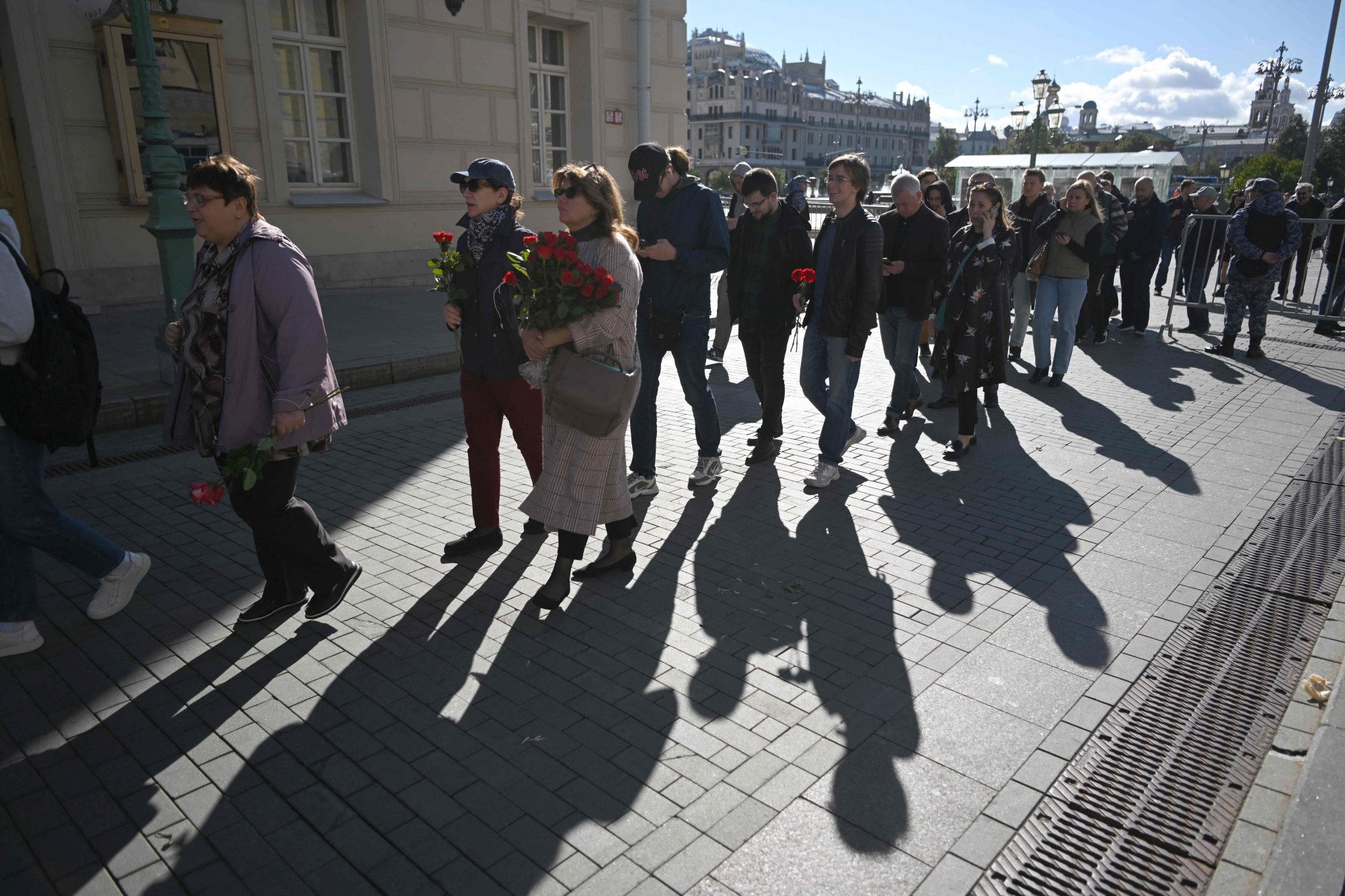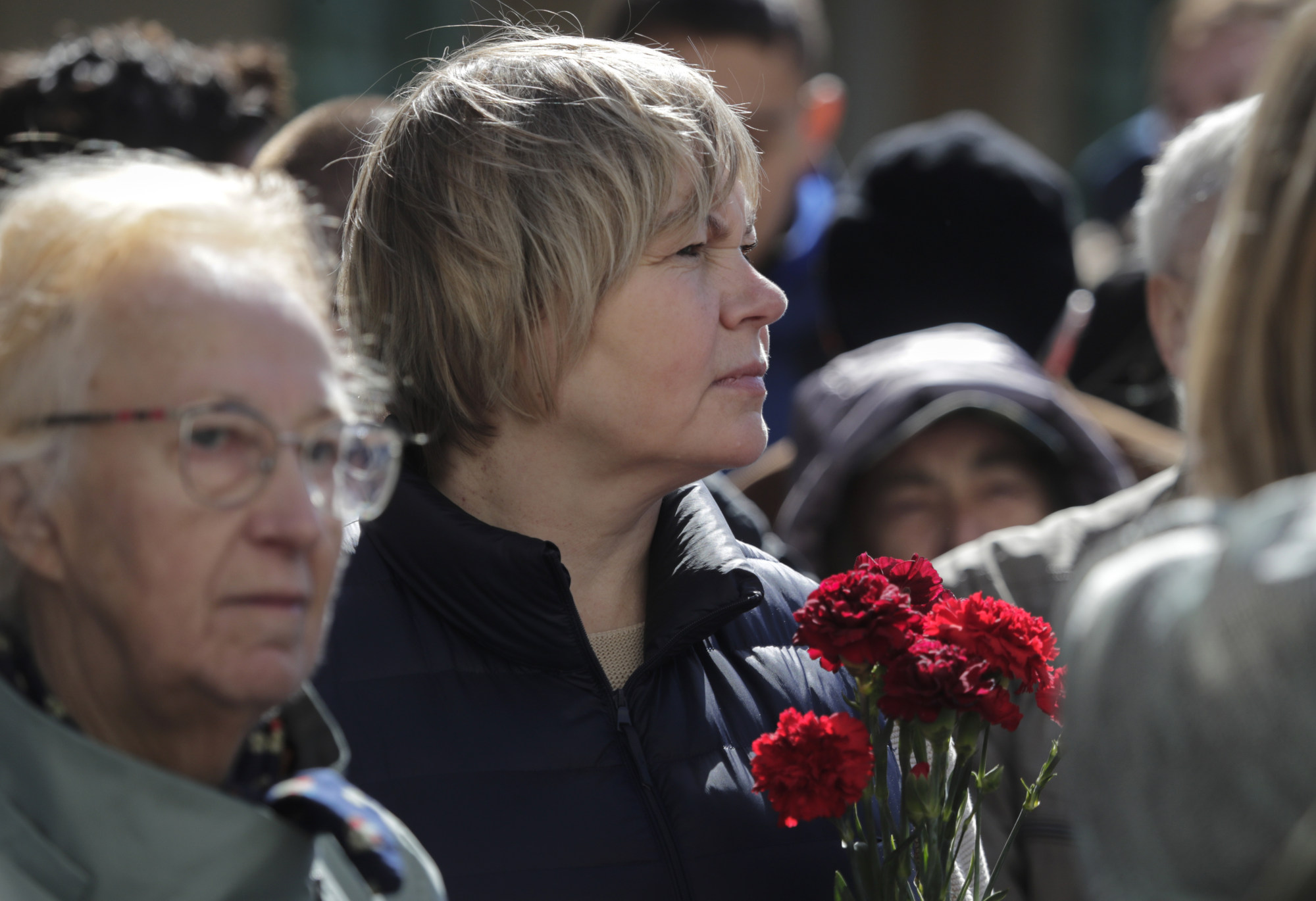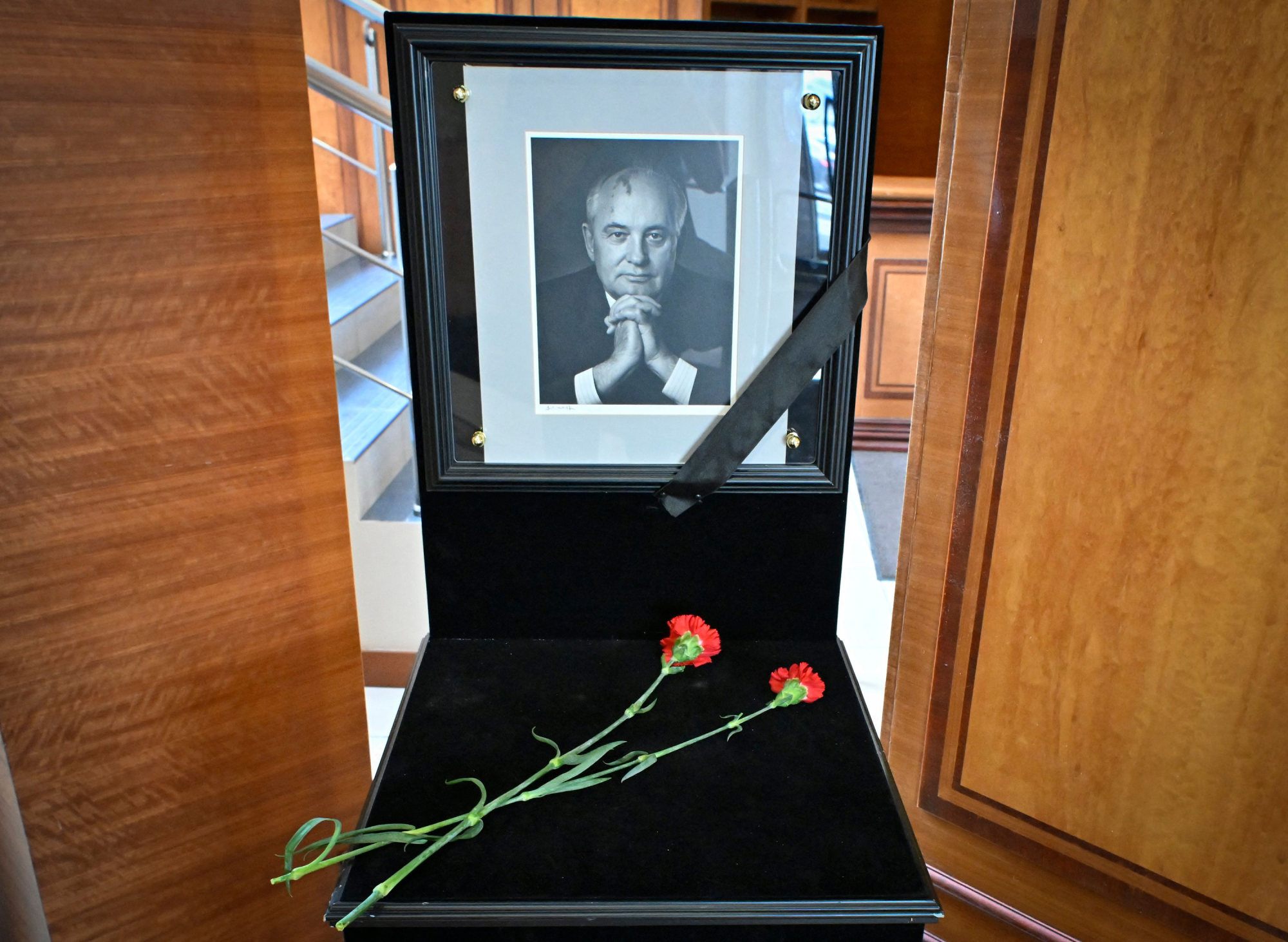
Russians say farewell to Mikhail Gorbachev, Soviet Union’s final leader
- Gorbachev, who died on Tuesday aged 91, was granted a public send-off but not a funeral with state honours or President Putin in attendance
- People were able to view his coffin in the Hall of Columns, near the Kremlin in Moscow, where previous Soviet leaders have been mourned
Muscovites lined up near the Kremlin on Saturday to pay their respects to Mikhail Gorbachev, the former Soviet leader who was widely admired in the West for his reforms and who lived long enough to see Russia’s leadership roll back much of that change.
Gorbachev, who died on Tuesday aged 91, was set to be buried without state honours or President Vladimir Putin in attendance.
He was, however, granted a public send-off, with authorities allowing Russians to view his coffin in the imposing Hall of Columns, within sight of the Kremlin, where previous Soviet leaders have been mourned.
Pallbearers hoisted Gorbachev’s wooden coffin, covered in a tricolour Russian flag, and placed it in the centre of hall, where a soft recording of melancholic music from the film “Schindler’s List” played in the background.
It was little surprise that Putin, a long-time KGB intelligence officer who has called the Soviet Union’s collapse a “geopolitical catastrophe”, denied Gorbachev full state honours and said his schedule did not allow him to attend the funeral.

But when the 15 Soviet republics seized on the same freedoms to demand their independence, Gorbachev was powerless to prevent the collapse of the Union in 1991, six years after he had become its leader.
For that, and the economic chaos that his “perestroika” liberalisation programme unleashed, many Russians could not forgive him.
The many Western heads of state and government who normally would have attended the funeral were absent Saturday, kept away by the chasm in relations between Moscow and the West opened up by Putin’s move to send troops into Ukraine in February.

But Hungarian Prime Minister Viktor Orban, a conservative nationalist and one of the few European leaders to have good relations with Putin, was due to attend, spokesman Zoltan Kovacs wrote on Twitter.
Kremlin spokesman Dmitry Peskov told the RIA news agency that Putin had no plans to meet with Orban during his Moscow visit.
Several Russian officials and cultural figures, including senior lawmaker Konstantin Kosachyov and singer Alla Pugachyova, also paid their respects to Gorbachev’s family, who were seated left of his open coffin.
Gorbachev’s funeral strikes a sharp contrast with the national day of mourning and state funeral in Moscow’s principal cathedral that was granted in 2007 to former Russian President Boris Yeltsin, who was instrumental in sidelining Gorbachev as the Soviet Union fell apart and who later hand-picked Putin as his own successor.
After the ceremony Gorbachev was, however, to be buried, like Yeltsin, in Moscow’s Novodevichy cemetery, alongside his adored wife Raisa, who died 23 years ago.

On entering the Kremlin in 2000, Putin wasted little time in rolling back the political plurality that had developed from Gorbachev’s policy of “glasnost”, or openness, and slowly began rebuilding Moscow’s influence over many of its lost republics.
Gorbachev’s long-time interpreter and aide said this week that Russia’s actions in Ukraine had left the former leader “shocked and bewildered” in the final months of his life.
“It’s not just the operation that started on February 24, but the entire evolution of relations between Russia and Ukraine over the past years that was really, really a big blow to him. It really crushed him, emotionally and psychologically,” said Pavel Palazhchenko.

